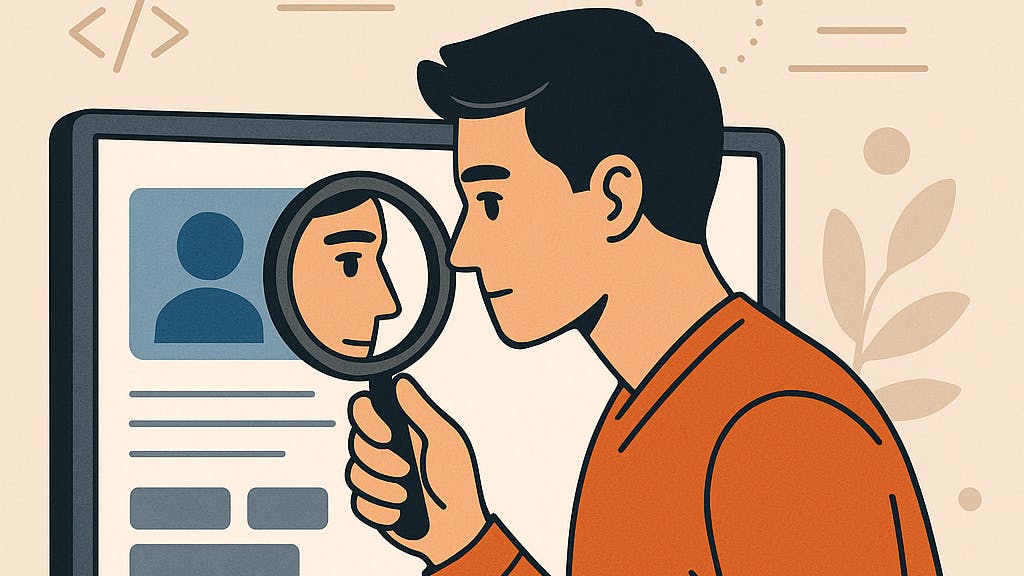Most digital profiles are graveyards.
They hold your old job titles, a few bullet points about past achievements, maybe a pinned post from last year that still somehow feels relevant.
But they rarely — if ever — reflect who you are becoming.
That’s a strange omission in a world obsessed with progress. We track our steps, optimize our sleep, measure engagement and performance. Yet when it comes to the arc of personal growth — the evolution of mindset, behavior, soft skills, adaptability — we have almost no structured way to see it.
We’ve built profiles for broadcasting.
We’ve never built profiles for becoming.
The Identity Trap of Static Profiles
From LinkedIn to resumes to personal websites, our current identity systems operate on a simple principle: prove your worth by documenting what you’ve done.
Job titles, degrees, timelines, testimonials — all anchored to past-tense data.
But identity doesn’t sit still. It doesn’t end with a title or a course.
In a world that’s increasingly remote, nonlinear, and collaborative, identity is more like a storyline than a static status.
Yet the tools we use to present ourselves are frozen in time.
We are measured by:
- The job we got, not the journey it took to get there
- The degree we earned, not the thinking it sparked
- The company we joined, not the character we developed inside it
The result?
We hire people based on what they can describe, not what they can do.
We assess talent by language and layout — not by behavior or trajectory.
In short: the way we present ourselves hasn’t caught up with the way we work, grow, or interact.
What If Your Profile Was a Mirror — Not a Billboard?
Imagine a different kind of profile.
Not a pitch. Not a highlight reel. But a mirror — something that shows how you respond to challenges, how you evolve over time, what you’ve learned (and unlearned), and where your current edge of growth lies.
A mirror profile could surface:
- Patterns in how you make decisions
- Shifts in leadership or communication style
- Growth in emotional intelligence or teamwork
- Reflections from collaborators and teammates
- Learning loops from failure — not just success
In many ways, it would feel less like a résumé and more like a journal that others could read — filtered through structure, not storytelling.
Importantly, this mirror wouldn’t just be for others to see you.
It would be for you to see yourself.
Because most people aren’t limited by lack of talent.
They’re limited by lack of clarity — no sense of where they are on their own arc, what skills they’ve leveled up, or what patterns they keep repeating.
Why Traditional Feedback Doesn’t Cut It
You might be thinking: But don’t we already have feedback systems?
Sort of. But most of them are:
- Sparse: Annual reviews, if that.
- Generic: Soft-skill boxes checked by managers with 12 reports.
- Filtered: Shaped by power dynamics, office politics, and bias.
Worse, they’re almost always private.
You don’t carry them with you. You can’t build on them. You can’t show them to a future team, mentor, or collaborator.
And so the most valuable part of your identity — how you grow, think, and engage with others — is invisible to the systems that define your career.
The Behavioral Gap in Our Digital Lives
We’ve built infrastructure to measure how we perform as users.
But not as humans.
Most digital data is designed for extraction — not reflection.
Platforms track clicks, likes, retention — not growth, awareness, or contribution.
What’s missing is an architecture of behavioral memory.
Something that captures not just what you did, but how you did it.
Not just what you know — but how you apply it, respond under pressure, or show up for others.
This isn’t about surveillance. It’s about perspective.
Imagine a system that could show you:
- You tend to avoid feedback in team settings
- You’ve become more decisive over the last six months
- You default to solo work but thrive when you collaborate under pressure
This isn’t science fiction. It’s just a new kind of profile logic — one built on reflection loops, not bullet points.
Why It Matters Now
As AI continues to reshape work, many of the traditional markers of talent are becoming obsolete.
Hard skills are commoditized. Credentials are everywhere. Everyone sounds impressive online.
The new competitive edge?
- Adaptability
- Communication
- Judgment
- Self-awareness
But these can’t be captured in a single test or an end-of-year review. They need living systems — ones that reflect growth over time.
If we don’t build these, we’ll keep mistaking the loudest signal for the most capable person.
We’ll keep choosing charisma over character. And we’ll keep losing people who are quietly evolving — because no one’s looking in the right place.
The Profiles We Deserve
Most platforms ask: What do you want the world to know about you? A better question might be:What do you want to understand about yourself?
The digital profiles of the future won’t just represent us.
They’ll reflect us — our growth, our contradictions, our development over time.
And they won’t just help others trust us. They’ll help us trust ourselves.


